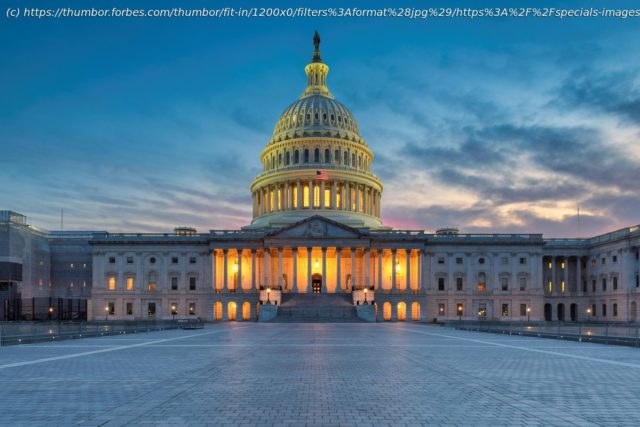Here’s a closer look at what’s in the « Coronavirus Response Additional Supplemental Appropriations Act, 2020. »
One of the drumbeats of the current Congress is the need to be more fiscally responsible. That makes sense. Our current national debt is $26,536,793,171,015 – and growing. The federal deficit – so far for 2020 – is $2.744 trillion. That’s following a Congressional Budget Office (CBO) report showing a deficit of $864 billion in June, more than 100 times larger than last June’s deficit of $8 billion. And we know the reasons: revenues are down, and spending is up.
(As a quick explainer, the federal deficit is the overage of expenditures versus revenue/receipts in a fiscal year (June was the 9th month of the fiscal year). The federal debt is more or less the aggregate of all of the deficits that we amass and represents borrowed money. You can read more here.)
And we don’t expect things to turn better quickly because we are in the middle of a pandemic.
Enter Congress with various plans to prop up the economy. In March of 2020, the Senate passed the Coronavirus Aid, Relief, and Economic Security Act or the CARES Act, which was criticized because of its size (it was either too big or too small, depending on who you listened to). In May of 2020, the House introduced and passed a new COVID-19 economic relief proposal known as the Health and Economic Recovery Omnibus Emergency Solutions Act, or HEROES Act. The massive bill was not taken up by the Senate. Now, the Senate has introduced the « HEALS Act » (Health, Economic Assistance, Liability Protection, and Schools Act), which is being rolled out as a series of proposals Senate floor.
The American Workers, Families and Employers Assistance Act introduced by Sen. Chuck Grassley (R-IA) focuses on stimulus checks, unemployment benefits and the like (you can read about it here). A supplemental proposal, led by Sen. Marco Rubio (R-FL) and Sen. Susan Collins (R-ME), tackles the Paycheck Protection Program (PPP) and business tax incentives (you can read about it here).
There are two at least two additional bills focusing on funding. One is the « Coronavirus Response Additional Supplemental Appropriations Act, 2020 », and it purports to provide discretionary appropriations to address COVID-19.
Home
United States
USA — Financial Think The Senate Funding Bill Is Just About COVID-19? Think Again.






